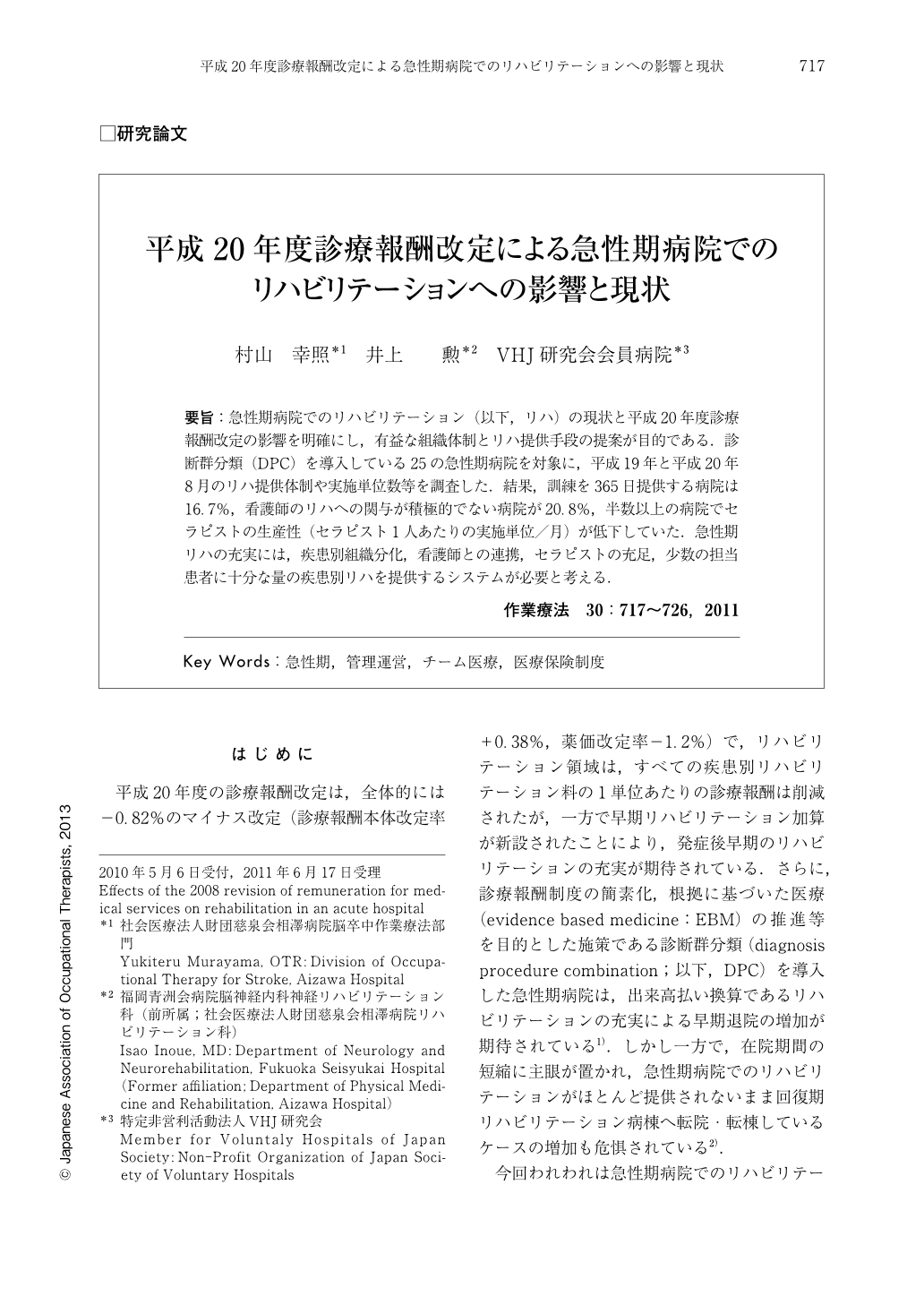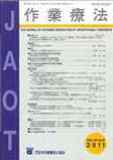Japanese
English
- 販売していません
- Abstract 文献概要
- 1ページ目 Look Inside
- 参考文献 Reference
- サイト内被引用 Cited by
要旨:急性期病院でのリハビリテーション(以下,リハ)の現状と平成20年度診療報酬改定の影響を明確にし,有益な組織体制とリハ提供手段の提案が目的である.診断群分類(DPC)を導入している25の急性期病院を対象に,平成19年と平成20年8月のリハ提供体制や実施単位数等を調査した.結果,訓練を365日提供する病院は16.7%,看護師のリハへの関与が積極的でない病院が20.8%,半数以上の病院でセラピストの生産性(セラピスト1人あたりの実施単位/月)が低下していた.急性期リハの充実には,疾患別組織分化,看護師との連携,セラピストの充足,少数の担当患者に十分な量の疾患別リハを提供するシステムが必要と考える.
Purpose of this survey was to recommend inpatient rehabilitation strategies and effective rehabilitation systems by clarifying the effects of the 2008 revision of remuneration for medical services on the current acute rehabilitation system in hospitals.
We surveyed 25 Diagnosis Procedure Combinations (DPC) implemented acute hospitals. We investigated the amount of rehabilitation services provided per patient and rehabilitation system (365 days system, a ward based rehabilitation system, number of conferences etc) in August of 2008 and 2009.
The survey results showed that only 16.7% of the hospitals provided rehabilitation services 7 days a week, 20.8% of the hospitals were not proactively encouraging cooperation between nurses and therapists, and the productivity of therapists (total units/month) was low in 50% of the hospitals.
In order to establish an enriched acute rehabilitation system, more rehabilitation therapists, more communication between nurses and therapists, more disease specific rehabilitation and more rehabilitation time per patient are required in each facility.

Copyright © 2011, Japanese Association of Occupational Therapists. All rights reserved.


